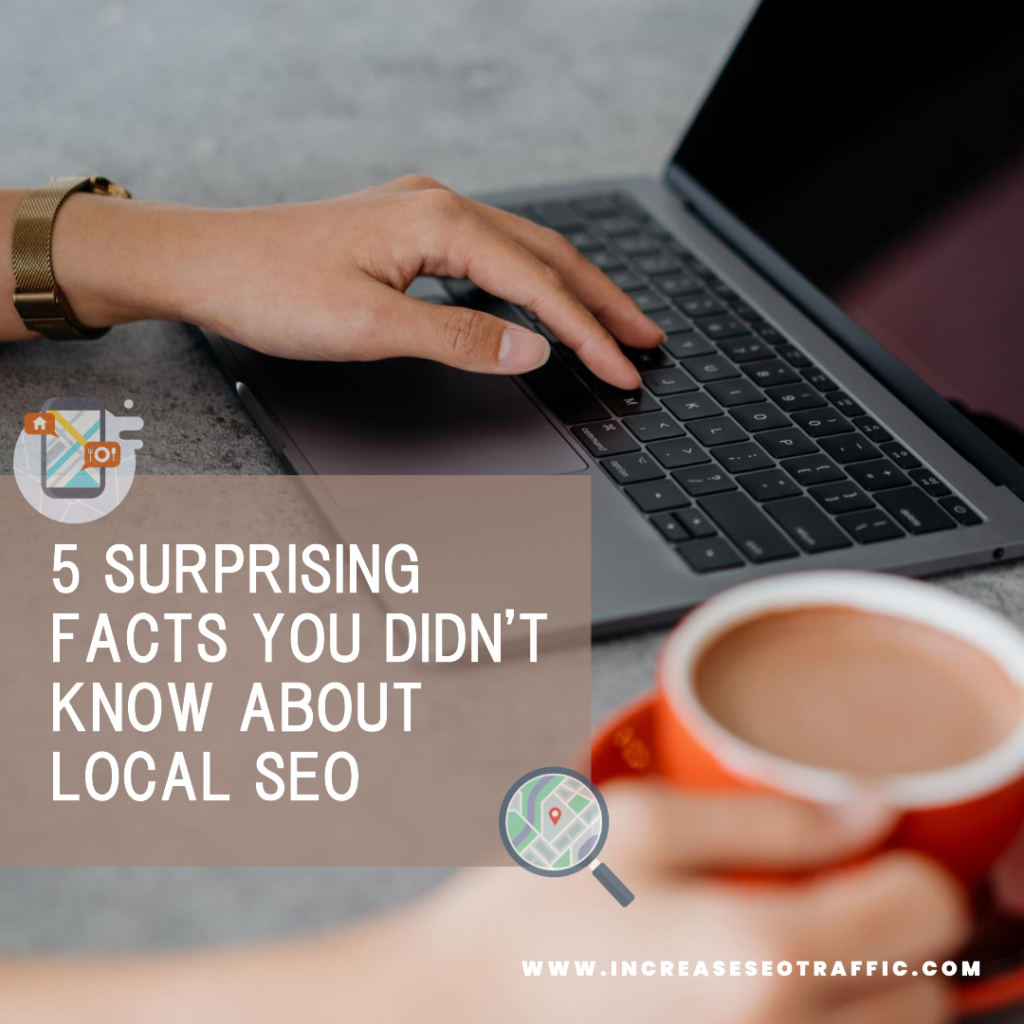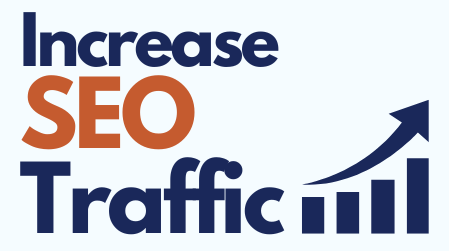
In today’s digital world, where most consumers search online for products and services, SEO (Search Engine Optimization) plays a crucial role in driving success for small and medium enterprises (SMEs).
Let’s assume with a real-life example. A small bakery implemented basic SEO practices like optimizing titles, meta descriptions, and local listings. Their website traffic increased by 130% within 3 months, leading to a 80% increase in customer walk-ins and online orders. Search Engine Optimization (SEO) plays a critical role in achieving this by optimizing their website and content to rank higher in search engine results pages (SERPs).
This demonstrates the tangible impact of SEO on a business. SEO is an ongoing process that requires continuous effort and adaptation. However, by understanding its benefits and investing in basic SEO strategies, SMEs can unlock significant growth potential and achieve their online marketing goals.
Why Learn SEO? 4 Reasons You Can’t Ignore!

1.) Increased Website Traffic and Visibility
2.) Improved Brand Awareness and Credibility
3.) Cost-Effective Marketing Strategy
4.) Competitive Advantage in the Digital Space
Let’s explore our 4 compelling reasons:
01.) Increased Website Traffic and Visibility:
Explanation: Imagine your website appearing at the top of search results when people search for terms related to your business. That’s the power of good SEO! By optimizing your website and content for relevant keywords, you attract more organic visitors who are actively searching for what you offer. This translates to increased brand awareness, website traffic, and ultimately, more leads and sales. When your website appears higher in search engine results, it means more people are likely to find your website through their search queries. This kind of traffic is called organic traffic. Organic traffic is valuable because people who find your website through search engines are often genuinely interested in the content you offer. This targeted and engaged audience is more likely to make purchases or take desired actions on your website, resulting in higher conversion rates and more sales.
Benefits of increased visibility & organic traffic:
More Brand Awareness: Climb the SERP ladder and become the face people recognize for their needs, building brand recognition and trust.
Targeted Leads, Better Sales: Attract ideal customers actively searching for your offerings, not just random clicks, leading to higher conversion rates.
Cost-Effective Growth: Ditch expensive ads and nurture free, organic traffic that keeps growing over time, saving you marketing dollars.
Credibility Boost: High rankings signal expertise and authority in your field, establishing you as a thought leader and attracting potential customers.
02.) Improved Brand Awareness and Credibility
Explanation: Ranking high on relevant search terms demonstrates expertise and authority in your field. This builds trust with potential customers and establishes your brand as a thought leader in the industry.
Example: Real-Life Example: Local Bakery & SEO Advantage.
Imagine two local bakeries:
Bakery A: Relies solely on traditional marketing methods like flyers and local newspaper ads. They have a decent online presence but haven’t invested in SEO.
Bakery B: Understands the value of SEO and actively optimizes their website and content. They target relevant keywords like “best chocolate chip cookies [city name]“, “local bakery with gluten-free options”, and “birthday cake delivery [city name]“.
Scenario:
A potential customer in the city is craving a delicious chocolate chip cookie and searches online.
Bakery B, due to its SEO efforts, ranks higher in search results for “best chocolate chip cookies [city name]”. This potential customer discovers Bakery B, browses their mouthwatering photos of cookies, and decides to order online.
Meanwhile, Bakery A, despite offering equally delicious cookies, remains hidden in the depths of search results due to lack of SEO. They miss out on this potential customer.
This scenario illustrates how SEO can provide a competitive advantage:
Increased Visibility: Bakery B attracts more potential customers who are actively searching for relevant products or services, giving them an edge over competitors who rely solely on traditional advertising.
Targeted Audience: They reach the right audience, attracting customers genuinely interested in their offerings, leading to higher conversion rates and sales.
Cost-Effective Marketing: Compared to traditional advertising, SEO offers a more sustainable and cost-effective way to reach new customers over time.
Local Focus: In this example, Bakery B targets local keywords, allowing them to dominate search results within their specific geographical area and attract more local customers.
03.) Cost-Effective Marketing Strategy
Explanation: Compared to traditional advertising methods, SEO offers a long-term, organic approach to attracting customers. While there may be initial investment in learning and implementation, the ongoing costs are minimal, making it a sustainable and cost-effective marketing strategy.
Example: Imagine two e-commerce stores selling eco-friendly clothing
Store A: Spends $5,000 per month on paid advertising campaigns like social media ads and Google Ads. While they generate initial traffic and sales, the cost is ongoing, and once the ad campaign stops, the traffic drops.
Store B: Invests time and effort in SEO, optimizing their product descriptions, titles, and website for relevant keywords like “sustainable t-shirts”, “organic cotton clothing online”, and “eco-friendly clothing brands”.
Scenario:
A potential customer searching for “organic cotton clothing online” discovers Store B through search engine results pages (SERPs) because of their SEO efforts. They browse the website, impressed by the ethical and sustainable clothing options, and make a purchase.
Meanwhile, Store A, despite having a similar product selection, might not appear on the first page of search results due to lack of SEO. They may miss out on this potential customer who might not scroll through multiple pages of search results.
This scenario highlights how SEO can be a cost-effective marketing strategy:
Sustainable Traffic Growth: While Store A relies on paid advertising for immediate traffic, Store B enjoys organic traffic growth through SEO, attracting customers without additional ongoing costs after the initial investment in optimization.
Long-Term Benefits: Once Store B’s website ranks well, they can attract organic traffic for months or even years without additional paid advertising, unlike Store A, whose traffic declines once the ad campaign ends.
Targeted Audience: By focusing on relevant keywords, Store B attracts customers actively searching for eco-friendly clothing, leading to higher conversion rates and sales compared to a broad audience targeted through paid advertising.
NOTE – This doesn’t mean paid advertising is always bad, but the above example demonstrates how SEO can be a valuable and cost-effective tool in an e-commerce business’s marketing strategy, offering a path to sustained organic traffic and customer acquisition.
04.) Competitive Advantage in the Digital Space
Explanation: In today’s digital landscape, competition is fierce. By understanding and implementing SEO best practices, you gain a significant edge over competitors who are not prioritizing search engine optimization.
Example: Imagine two law firms in a competitive city
Firm A: Relies on traditional marketing methods like print ads and local directories. They have a basic website but haven’t invested in SEO.
Firm B: Understands the importance of SEO and actively optimizes their website and content. They target relevant keywords like “personal injury lawyer [city name]”, “divorce lawyer [state name]”, and “estate planning attorney [city name]”.
Scenario:
A person in the city searches online for a personal injury lawyer after an accident.
Firm B, due to its SEO efforts, ranks highly in search results for “personal injury lawyer [city name]”. This potential client discovers Firm B, reads positive reviews on their website, and decides to contact them for a consultation.
Meanwhile, Firm A, despite having experienced lawyers, remains hidden in the depths of search results due to lack of SEO. They miss out on this potential client who might not have the time or resources to explore further pages of search results.
This scenario illustrates how SEO can provide a competitive advantage for law firms:
Increased Visibility: Firm B attracts more potential clients actively searching for legal services in their area, giving them an edge over competitors who rely solely on traditional advertising.
Targeted Audience: They reach the right audience, attracting potential clients genuinely interested in their specific legal expertise, leading to higher conversion rates and client acquisition.
Credibility & Trust: Ranking high in search results signifies authority and expertise in the legal field, building trust with potential clients who are more likely to choose a firm appearing at the top of their search queries.
Local Focus: In this example, Firm B targets local keywords, allowing them to dominate search results within their specific geographical area and attract more local clients.
Investing in your SEO knowledge empowers you to take control of your online presence, attract more targeted traffic, build brand authority, and ultimately achieve your digital marketing goals. Whether you’re a business owner, entrepreneur, or content creator, learning SEO is a valuable skill that will benefit you in the long run.
Further Resources:
Google Search Central: https://search.google.com/search-console/about
Moz Beginner’s Guide to SEO: https://moz.com/beginners-guide-to-seo
Related blogs

Surprising Facts You Didn’t Know About Local SEO
5 Surprising Facts You Didn’t Know About Local SEO Read the blog Most people are aware of the importance of

Benefits Of Local SEO
Local SEO Strategies Untap the benefits Read the blog SEO is a powerful tool that can significantly impact the success

Boost Your Local SEO
Expert Tips – How To Boost Your Local SEO Ranking With Minimal Effort Read the blog Expertise in local search
